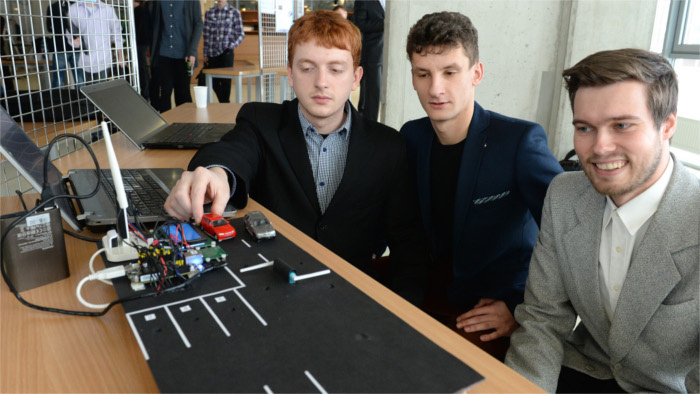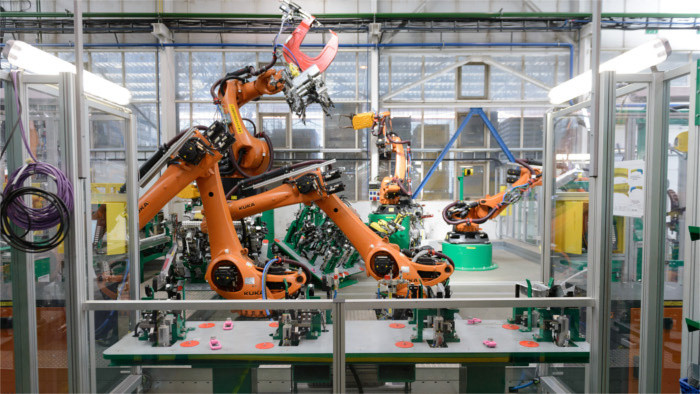It's summer time so many of you might be on holiday or at least thinking about one. While relaxing on a beach you might also be thinking of changing your job or wondering how to ask for a pay rise as you are already overusing your credit card. Now imagine that you are working in Slovakia. At the end of June the unemployment rate reached a historical low level of 6.9 percent or so the Labour Office says and the Slovak Central Bank's analysts had predicted that in the next few months salaries could grow due to companies competing for employees as there is a shortage of them on the market. By the beginning of the summer Slovakia's largest job website Profesia has reported a record number of job offers - 111,079- which is a 12.5 percent increase in comparison to the same period of last year but almost double if compared to 2013 or 2014."We can clearly see that while the number of offers is going up the number of applicants is going down. Our data show that the number of reactions to job offers from the potential candidates' side is up to 60 percent lower in comparison to two years ago which means that companies are really faced with a shortage of candidates and they have to adapt to this situation. For example positions for which 3-4 years ago professional experience in the field was a must are now advertised to graduates with no professional experience. Then they try to offer more benefits apart from salaries- flexible working hours, the possibility to work from home, plus other things such drinks and food for free, social activities, parties and so on. The IT sector is the clear leader when it comes to shortage of employees followed by the car industry,"says Nikola Richterová a spokesperson for Profesia.
There is no secret that the Slovak economy is dependent on the car industry which is by far the largest private sector employer in the country. An estimated 200,000 people work for the three already existing big carmakers Kia, PSA Peugeot Citroen and VW and their networks of suppliers and subcontractors. The fourth one Jaguar Land Rover which is currently building a factory near the town of Nitra will add to that number.

"Between 2017 and 2020 the Slovak industry will need 45,000 new employees from which 15% should be university graduates and the rest technical and vocational school graduates. The problem is that the structure of those coming to the labour market now is far from what we need- they studied something else and need requalification," says Juraj Sinay the head of the Slovak Association of the Automotive Industry, one of the organisations that openly admits that the market needs to open to the foreign labour force too as requalification will not solve the problem of the shortages of workers. If you think in terms of offered salaries in the card industry- the carmakers themselves offer their workers at the assembly line an average gross wage of around €900; in addition to this they can receive a variety of bonuses for night, weekend shifts or special projects. Engineers are offered around €1,400 with a similar system of bonuses applied.
The car industry is not the only one hungry for employees. According to the Economy Ministry there is another sector that has high potential for growth in Slovakia- shared services centres. Deputy Economy Minister Rastislav Chovanec explains. "We have identified the shared services centres as the sector with the best perspective from the long term point of view. Last year the employment in this field went up by 11 percent on average which made it the fastest growing sector in Slovakia. It's very real that by 2020 it will reach 60,000 employees and it will be second only to the car industry in its importance for the Slovak economy. The main reason behind the current growth is that it offers good salaries. The average salary in this sector is twice the average salary within the Slovak economy."
Taking into account the latest available data from the Slovak Statistics Office from the first quarter of this year and the Deputy Minister's words, the gross average monthly salary in shared services centres should be about €1,800 before taxes. According to the same source financial and insurance services and ICT sectors topped the list of the highest salaries with €1,791 and €1,743 respectively. At the other end are accommodation and restaurants and construction where employees earn roughly a third of these sums. Profesia has been running its own salary surveys based on concrete positions and locations and which allows jobseekers to compare salaries on its website. According to their findings it depends very much on which position you work in the shared services centres sector because in Slovakia a supervisor in a call centre makes on average about €1,187 before taxes per month while a helpdesk operator about €915. A billing specialist is paid about €1,120 on average and an IT support specialist €1,335. "Based on our data from this survey, currently the average gross salary in Slovakia is about €1,129 per month. We have, however, to bear in mind that there are big regional differences in Slovakia with Bratislava clearly on top when it comes to the highest salaries. The further East you go the lower the salaries are. It's very important to look at salaries for concrete positions and a concrete location as regional differences can be even in the range of 20% or higher. It can happen that in the same company for a similar position somebody in Košice is offered less than a colleague in Bratislava," explains Nikola Richterová from Profesia.
Oh, and apart from these regional differences one should not forget that in Slovakia on average women are paid by 9 percent less than men for the same position and level of experience and as much as 23 percent less overall. This is mainly caused by the fact that women dominate the working force in sectors such as healthcare, education and accommodation and food services which are far from the top of the best payers. Healthcare and education are in fact the sectors which require high skills, face serious shortages of Slovak personnel but also have the highest bureaucratic barriers when it comes to access for migrants despite the fact there is low interest from foreigners' side anyway. Sounds like a paradox? Slovakia's immigration policy is not user friendly overall despite the pressure from various industries to change it."Bringing in foreign employees, especially from a country outside the European Union, adds to the costs with the labour force. Even if shared service centres got a change in the law reducing the period in which the residence permit has to be issued to a maximum of 30 days and there are some facilities for employees moving from one branch of the same company to another, there is still a lot of a paperwork to be filled. That employer also has to have a cost-benefit approach as it happens that foreigners will choose Slovakia only as a short stop on their way to better paid and more attractive jobs in Western Europe. When choosing a country, people, especially highly skilled ones, look at the bigger picture not only at salary and benefits- they also care about the quality of life in that place, schools for kids, healthcare and so on", says Nikola Richterová.

Now you might think that employees in Slovakia have a lot of good cards up their sleeves- they are in demand so they can put pressure on their bosses for better pay and benefits or else change their job. A group of sociologists from the Slovak Academy of Sciences has found out that the reality is different. As part of the International Social Survey Programme they compared Slovaks' attitude to employment with that of people from 49 other countries in the world. In the survey conducted last autumn in Slovakia only 21.6 percent of respondents said they had high incomes, less than the average of all countries involved but 83 percent of them said they were pleased with their job.
"Job security- meaning you are not in danger of being laid off- is the most important feature of employment for Slovaks. It's followed by how interesting the work is, that it's not something boring and repetitive with the level of salary coming only third, " says Robert Klobucký, one of the sociologists involved in the survey adding that high income is a very subjective notion for respondents, but very important for young men. Among those 47 percent of Slovaks who said they fear losing their job, older people living in regions with high unemployment dominate. About 65% of Slovaks say their job is interesting. The figure is below the average of countries surveyed but it's interesting in itself because the group is dominated by high income earners and those working in so called prestigious fields. Following this logic it seems that nurses and paramedics really are the most selfless employees in Slovakia.
Now with Slovakia having officially submitted its candidacy for Bratislava to host the European Medicines Agency which is to leave London due to Brexit, the question is what can the local labour market offer in terms of job opportunities for non-Slovak speaking spouses of Agency's roughly 900 employees? This is one of the criteria that the hosting country must meet. In its official presentation the Slovak Government mentioned the job offers of multinational companies doing business in Bratislava, that's mainly the shared services centres. "I think it will be tricky to find so many jobs for non-Slovak speakers at once and even if they do there is the question of what kind of jobs and for what salary. I mean somebody who moves from a well-paying job in London to Bratislava will most probably be confronted with a visible pay cut and even with the risk that they may not be able to practice their profession if they are for example doctors, nurses or work in other professions for which there plenty of barriers for access to the Slovak labour market,"concludes Nikola Richterová.
Hungry labour market
Máte problém s prehrávaním? Nahláste nám chybu v prehrávači.


